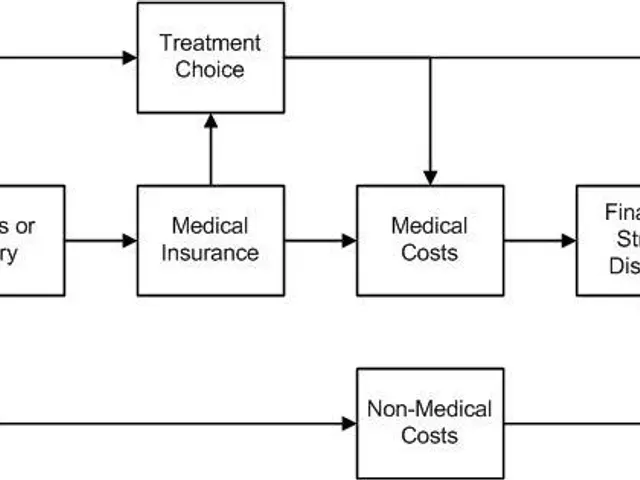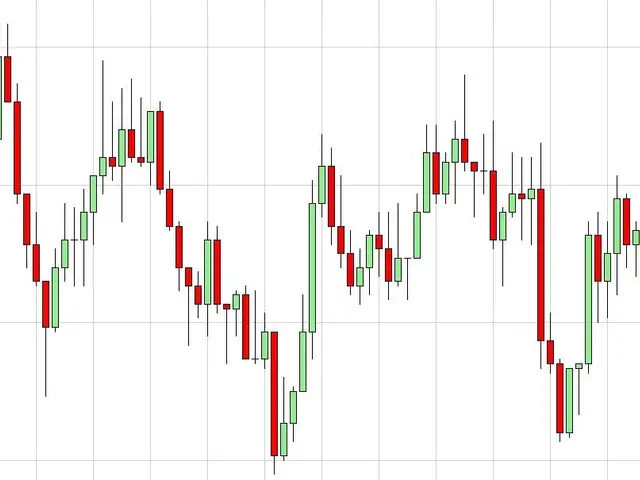Title: The Unprecedented Swell of Riches Amassed by the Wealthy Elite
Sky-high riches among the elite continue to reach astronomical levels, surpassing previous records.
It's no secret that the study by consulting giant, Capgemini, reveals strikingly high numbers: the collective wealth of the world's rich has shot up by an staggering 4.2% during the past year. And it's not just the number of them that's on the rise - the sheer magnitude of their wealth is a record-breaking phenomenon that's nonexistent even in Germany.
These avid wealth accumulators are labeled as those with over a million dollars in liquid assets, excluding their primary residences. The latest surge in their ranks has across the years, now eclipsing the impressive figure of 23.4 million. Yet, it's the number of super-rich, boasting over 30 million, that fueled the surge, the latest World Prosperity Report suggests.
The USA, in particular, has seen a breath-taking increase of 7.6% in its millionaire population, reaching close to eight million. This miraculous leap is majorly commendable to the upward trajectory of stock prices, as the report reveals.
In Europe, however, the upward trend stands stagnant, with a 2.1% drop in the number of wealthy individuals. This is primarily attributed to the economic slump in the continent's key economies, causing a loss of over 21,000 millionaires in a year, France taking the biggest hit. On the flip side, the number of Europe's ultra-wealthy private individuals has seen a 3.5% spike, indicating a growing concentration of wealth.
Taking Stock of Germany's Billionaire Decrepitation
The marked decline in Germany's dollar millionaires is estimated by Capgemini to be due to the dwindling real estate market. Intriguingly, the total wealth of Germany's rich remains relatively untouched, holding steady at a staggering 6.32 trillion dollars.
Capgemini's annual study - christened as the "World Wealth Report" - factors in stocks, bonds, alternative investments such as private equity, cash, and real estate (excluding self-used properties). Notably, the study omits art collections and consumer goods such as vehicles and jewelry.
The research covers 71 countries that account for over 98% of global GDP and 99% of the world's market capitalization. In addition, the study surveys approximately 6,472 dollar millionaires, grilling them on their investment strategies. In the ongoing debate over wealth distribution, the escalating income inequality has spurred discussions on the more efficient taxation of the highest wealth brackets.
Much Ado About Inequality
While the World Prosperity Report 2024 isn't explicitly mentioned in the search results, the factors contributing to wealth disparities are well-researched.
- Inequality driven by Economic Growth: Economic growth, particularly in the USA and Europe, predominantly advantage the wealthy over lower-income groups, due to factors like increased stock values, real estate prices, and the escalating concentration of wealth among the wealthiest 1%.
- Tax Policies and Redistribution: Policies favorable to the wealthy, coupled with insufficient redistribution mechanisms, play a significant role in maintaining and increasing disparities in wealth. Critics argue that these policies sometimes fail to address income inequality effectively.
- Globalization and Market Dynamics: Globalization has opened up countless avenues for wealth creation, primarily in high-income nations. However, it also amplifies inequality by turning winners into losers in the global market.
- Technological Advancements: Technological progress has boosted productivity, but it advantageously impacts those who already possess substantial wealth, enabling them to exponentially increase their wealth through technology-oriented investments.
- Financial Market Performance: Strong financial markets, such as those seen in the USA and Europe, have played an essential role in generating wealth for the rich, with stock market profits and other financial instruments tend to favor the wealthy.
- In light of the escalating income inequality, discussions regarding more efficient taxation of the highest wealth brackets have become increasingly relevant, given that favorable tax policies and inadequate redistribution mechanisms are contributing factors supporting disparities in wealth.
- Policymakers and community leaders may find it beneficial to examine and revise employment policies and business practices to provide more equitable opportunities for employment, as wealth accumulation is not solely dependent on financial market performance but also on job access, earning potential, and wealth-management practices.




